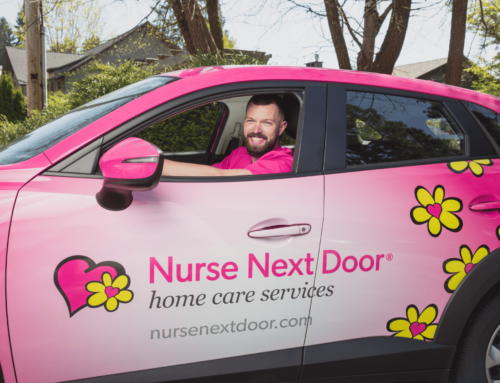The demand for home health care services has been on the rise in Pennsylvania (PA) and is expected to continue growing in the coming years. The aging population, advances in medical technology, and a shift towards providing care in a cost-effective and comfortable setting are some driving factors behind this industry’s growth.
Starting a home health care agency in PA can be a profitable business opportunity for those with a passion (and life’s purpose) for helping others and who have the necessary skills and resources to do so.
Let’s get into it: How to start a home health care agency in PA.
Understanding the Home Health Care Industry in Pennsylvania
Becoming a business owner of a home health care agency in Pennsylvania requires compliance with state and federal regulations and guidelines. To provide in-home health care services, an agency must be licensed by the Pennsylvania Department of Health and adhere to federal regulations set by the Centers for Medicare & Medicaid Services (CMS) and state regulations set by the Pennsylvania Department of Health.
Regulations and Guidelines for Operating a Home Health Care Business
Some of the key regulations and guidelines for operating a home health care agency in Pennsylvania include:
- Licensure: To obtain a Pennsylvania home care license, you must apply through the Pennsylvania Department of Health. The license must be renewed regularly, and the agency must meet all licensing requirements, including passing inspections and demonstrating compliance with regulations.
- Medicare Certification: To participate in the Medicare program, a home health agency must be certified by the CMS, which involves meeting federal requirements for patient care and services and passing an inspection.
- Patient Care: Home health care businesses in Pennsylvania must provide high-quality patient care in accordance with state and federal regulations, including meeting staffing requirements, maintaining proper medical records, and providing appropriate medical treatment and services.
- Employee Screening: You must screen and train all employees through background checks and necessary certifications, including caregivers and nursing staff.
- Financial Management: Adherence to financial management and reporting is required, including keeping accurate financial records, submitting timely financial reports, and maintaining financial stability.
- Quality Assurance: As a home care business owner in Pennsylvania, you must establish and maintain a quality assurance program to ensure high-quality patient care and services, including regular audits and assessments of patient satisfaction.
These are just a few of the regulations and guidelines for operating a home health care agency in Pennsylvania. It is recommended to seek the assistance of a health care attorney or consultant to ensure compliance.
Services Offered by a Home Health Care Agency
A home health care business can offer a range of services aimed at helping individuals recover, maintain independence, and manage chronic conditions in the comfort of their own homes. Some of the most common services offered include:
- Skilled Nursing Services: This includes medical treatment, clinical support, and monitoring by licensed nurses, such as wound care, IV therapy, and medication management.
- Occupational Therapy: Occupational therapists help individuals with daily activities and provide adaptive equipment as needed.
- Personal Care: This includes help with activities of daily living, such as bathing, dressing, and grooming.
- Homemaking: Homemaking services include cleaning, laundry, and meal preparation.
- Companion Care: Companion care services provide socialization, conversation, and support for individuals who live alone or have limited mobility.
These services can be customized to meet each individual’s specific needs and preferences and may be covered by Medicare, Medicaid, or private insurance.
Target Market and Demographics
The potential target market and demographics for a home care business in Pennsylvania include seniors, individuals with disabilities, those recovering from illness or surgery, caregivers, and family members.
The majority of the target market is expected to come from the aging baby boomer population in the state, as the senior population is expected to grow rapidly in the coming years. There may also be demand from individuals in urban areas who prefer to receive care in their own homes.
Home Health Care License (Legal and Compliance Requirements)
Starting a home care business in Pennsylvania requires attention to legal and compliance requirements. Obtaining a home health care license from the state is the first step in operating within state regulations. This requires meeting eligibility requirements and applying to the relevant agency. Once the license is obtained, the business must comply with state and federal regulations, including patient care, record keeping, and safety laws.
Obtaining a license requires meeting standards and demonstrating the necessary resources and personnel to provide high-quality care. Pennsylvania home care businesses also require compliance with HIPAA and ADA laws, insurance, and bonding to protect the business and clients from financial loss.
Setting Up Your Business
Starting a home care business in PA requires careful planning and consideration to ensure a successful launch and business operations. The first step is to choose the right business structure, considering each option’s advantages and disadvantages. It’s important to seek advice from a lawyer or accountant before deciding.
After deciding on a business structure, the next step is registering your business with the Pennsylvania Department of State and obtaining any necessary licenses and permits.
This process may include:
- Getting a tax identification number
- Obtaining business insurance
- Registering with the Pennsylvania Department of Revenue
A comprehensive business plan should also be developed, outlining your goals, strategies, and budget. This plan can help you secure funding and financing options, such as loans, grants, or investment capital.
Staffing and Training for Home Health Care Agencies
Hiring and retaining qualified staff are crucial for the success of a home care business in PA. It involves adhering to guidelines for hiring and training employees, complying with state and federal labor laws, and providing ongoing support and training.
Guidelines for Hiring and Training Employees
Home care agencies in PA must follow strict guidelines when hiring and training employees to ensure the safety and well-being of clients. This includes conducting background checks, verifying credentials, and providing comprehensive training in areas such as patient care, communication, and emergency response. A mentorship program or ongoing training and development opportunities can also be beneficial for employees to maintain and improve their skills.
Compliance with Labor Laws
Home care businesses must comply with both state and federal labor laws to avoid legal consequences. This includes adhering to minimum wage and overtime regulations, providing fair treatment and equal opportunities for employees, and keeping accurate records of employee hours and pay. Health and safety regulations, such as those related to infection control and reporting abuse or neglect, must also be followed.
Finding and Retaining Qualified Staff
Finding and retaining qualified staff can be a challenge for home care businesses in PA. To overcome this, effective recruitment strategies, competitive compensation and benefits, and a supportive work environment can be implemented. Building a positive reputation in the community and maintaining open communication with employees can also contribute to job satisfaction and employee retention.
Growing Your Home Care Business in Pennsylvania
Marketing and building a client base is essential for the growth and success of a home health care agency. Creating a marketing strategy for increasing referral business and expanding your client base includes establishing relationships with healthcare providers and related services, offering competitive pricing and services, and staying current with changes in the market.
Strategies for Building a Client Base
Developing a strong client base is key to successfully starting a home care business in Pennsylvania. Targeted marketing efforts, such as creating a professional website, utilizing social media, and building a network of referral sources in the community, can help achieve this. Establishing a reputation for high-quality care also encourages word-of-mouth referrals and builds trust with potential clients.
Building Relationships with Healthcare Providers
Relationships with healthcare providers and related services are critical to the success of a home care business in Pennsylvania. This includes partnering with hospitals, nursing homes, and other healthcare facilities to increase referrals and forming relationships with local medical equipment providers, rehabilitation centers, and other related services to provide a full range of services to clients. By establishing these relationships, a home care business can become a trusted and reliable provider in the community.
Staying Competitive in the Industry
The home care industry is constantly evolving, and a home care business in Pennsylvania needs to stay competitive and adapt to changes. This means staying up-to-date with industry trends and technology, offering a wide range of services and custom care plans, and continuously improving the quality of care provided. Monitoring the competition and responding proactively to market changes can also help maintain a competitive edge and ensure the business’s long-term success.
Wrapping Up!
Starting a home health care agency in PA can be a profitable opportunity for those passionate about helping others and equipped with the necessary skills and resources. Understanding regulations and guidelines, creating a comprehensive business plan and budget, finding and retaining qualified staff, and building a client base are crucial for the growth and success of your business.
Professional organizations, like Nurse Next Door, government agencies, and online resources are available for additional information and assistance. Take the next step towards starting a successful home health care agency in PA.

 x
x







